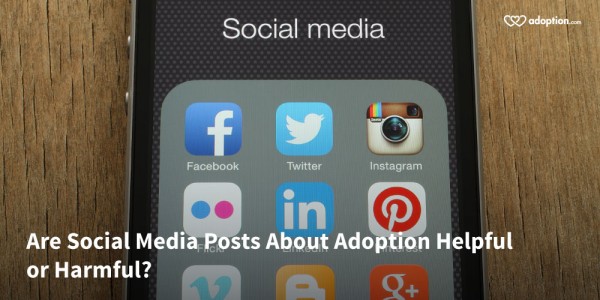In my surfing through social media sites, reading posts by people I’ve never met, clicking links to various sites–you know how it goes–one thing leads to another, and if I’m not careful I could spend the day with my face in the computer. Well, some of the stuff I see is uplifting and makes me feel all warm and fuzzy. Some, not so much. I got stuck, one day, reading post after post filled with birth mother angst, adoptee insecurity, and adoptive family frustration. What a downer!
I, myself, am an adoptive mother. We have biological children and an adopted son. As I felt the anger of selected birth mothers seep through their words on social media, I vacillated between feeling angry right back at them, and my heart breaking—wondering if our son’s birth mother would like to say the same things. And as I read frustration after frustration of adoptive parents, the only way I could relate really had nothing to do with adoption at all. When I could relate, I realized it was just normal “mother frustration” that I felt occasionally with all of my children—adopted and biological. But when I read words expressed by adoptees explicating their own insecurities, feelings of self-loathing, hurt, and even anger . . . that stopped me cold.
Is our son insecure? Is he constantly hurting, angry, defiant, feeling cheated? Is he confused, feeling lost, thinking he doesn’t belong? Our son is now grown–but everything I was reading was from adult adoptees. So if they still carry all this negativity, could my son also be carrying it? The thought caused my heart to physically hurt. We’re a pretty open family—we talk to each other regularly and love getting together. All of us. Including our adopted son. Could he have been carefully tucking away painful, negative feelings all these years, and I hadn’t been perceptive enough to know? It was a scary thought!
You know how when you see something horrible, instead of looking away, your eyes are riveted on it? Like a car accident. It’s horrific, but you’ve got to see what happened. This day was like that. I hated what I was reading, how it was making me feel. But I kept looking for more. I even contacted one of the writers—the one who expressed the most negativity. Could I have been blind all these years? Do all adoptees feel this at some point? Has he been hurting? Is he angry at us? Does he wish he had never been adopted? Does he feel abandoned and unloved? The writer’s response to me did nothing to assuage my concerns. I wouldn’t get any solace from seeking out opinions of others—especially others who are angry.
That evening before retiring for the night, I called my son. It was our usual conversation, talking about college classes and dates, money and friends. Through the conversation my tension released, my heart relaxed, and my fears left. As a youth, whenever he was asked his feelings about adoption, his response was always, “It’s a non-issue.” And so it is for him. And for the rest of us. We are a family—and how our family came to be is a non-issue. While participating in online conversations is helpful for many, for me, the best therapy is open communication with my family. I slept well that night as I thought back on the end of our conversation. “I love you Mom,” he said. And the call ended.

